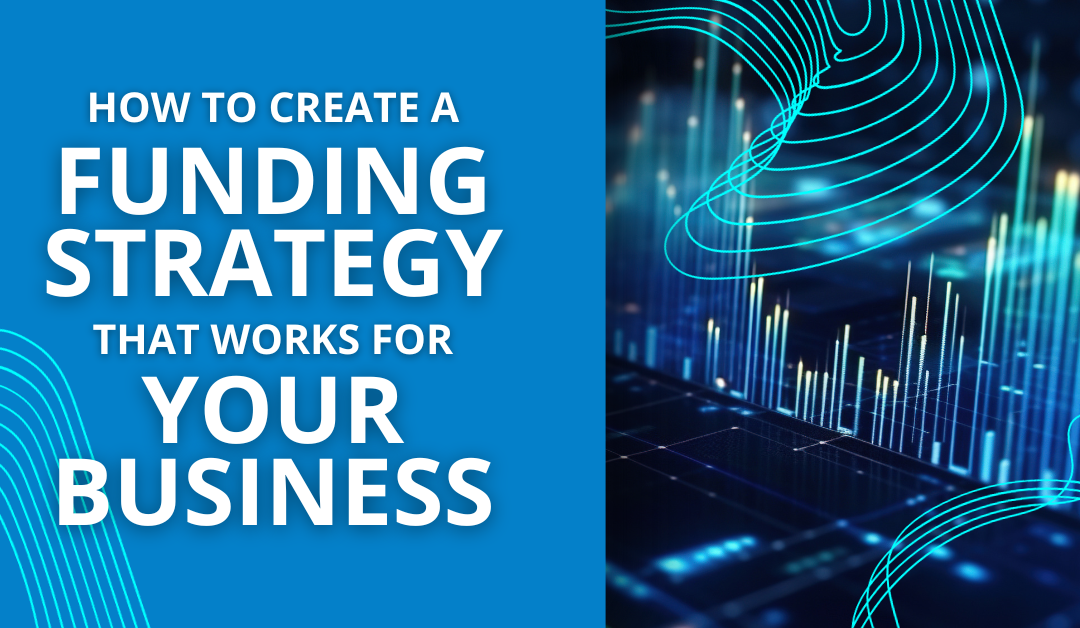We often speak with business owners who are weighing their options for cash infusions for their work. The problem is, these business owners often don’t have the reference points with which to make an informed decision that truly benefits their needs. We see a lot of misunderstandings about equity investment vs. loans or the dreaded 4-letter word: debt. A lot of business owners may not know the extent of what each choice really means for their business and how these options can impact overall business goals.
To help, we’ve compiled some things to keep in mind when you dive into creating or revising your funding strategy.
“It ain’t what you don’t know that gets you into trouble. It’s what you know for sure that just ain’t so.” – Mark Twain
Identify Your Goals
Bottom line: what is your goal?
When deciding between cash flow options, it’s essential to know:
- What your current needs and goals are
- How the cash can assist those needs and goals
- What the long-term effect will be on cashflow
- What long-term goal this funding will progress
At the very least, draft out this part of your plan before you jump to a decision on which means will bring you to your desired end.
Focus on Long-Term Success
A lot of the time, we hear business owners claim that giving up some equity for quick cash access makes the best sense to them. In reality, it’s much better to never need a leg up or extra cash that you have to pay back. However, in most circumstances, that just isn’t possible, especially in an industry like government contracting where you can literally grow 2x or more in one fiscal year.
Quick access to funds with no payment terms seems most appealing when business owners find themselves in these situations:
- They didn’t anticipate rapid growth.
- Their relationships aided quick contract turnarounds.
- Their offering is in high demand.
- They just simply neglected to make a funding plan prior to going after the work they won.
This is why having a funding plan in place for your strategy to win is so important.
Raise your hand if you went all in, sending out multiple proposals, setting competitive pricing, ensuring a plan to have the manpower to perform, but you never thought about how you would pay for it all until after you won. You relied on the win to be enough to give you the access to what you need to pay for it all.
Your contract wins will not impress your funding options as much as your financial past performance will. Understanding that first will allow you to create a plan that will get you in line to receive the cash you need—or at least get it lined up with a partner that can assist you.
Equity Investment vs. Strategic Debt
What’s the relationship between equity investment and strategic debt? Well, in both cases, you are spending someone else’s money. A good way to look at the difference is the long-term impacts they can have on your business.
With equity investment, you are giving away a portion of your current and future profit for the lifetime of your business. With strategic debt like a line of credit, you are borrowing money for a short time from a source that will be paid back in full, with interest, with no exchange of equity. Although there is no way to predict what your future success will be, are you willing to give up a growing portion of profit for the foreseeable future? Of course, that’s not to mention the possibility of inheriting a partner that may or may not share your dreams for the business or even fully understand what you do and how you do it. To most, these outcomes sound less than ideal.
Additionally, when you sell your business, the equity investor has rights to some of the proceeds of the sale. This reduces what you earn at the end of your business’ lifecycle. Are your capital needs worth diluting your ownership in your own company?
We admit that we’ve offered a lot here, but we hope that this starts your process of really uncovering your funding plan early on. Think pricing strategy, capture plan, and funding options. These three concepts can help optimize your ability to perform well.
If you are looking to build a strategy for funding, get some help from a cashflow expert, and share your current and future pipeline pursuits, you’re in the right place. And, as always, being transparent and honest in the process will benefit you in the long run.

